Performing Arts is incredibly important within education because it can make a profound difference to the personal as well as the academic and professional development of the student. The overarching aim of Performing Arts at the UTC is to broaden participation in Performing Arts within Tower Hamlets. London is one of the most bustling centres of culture in the world and ample opportunities exist for our students, and our job is to help them access this world.
The subject is very well suited for vocational training because it is project based and provides experience of a large range of roles within the industry. Our ‘why’ for teaching performing arts is embedded in curriculum rationale as we aim to introduce students to the professional world of performing arts and production. The desired result is to provide students, who may have little knowledge of these sectors, with a ‘professional’ experience in theatre.
What will students learn?
KS5
Year 1:
Unit 4 – Critical approaches. This is a research unit.
Students will compare critical approach to two different practitioners from different times: Stanislavski and Berkoff
Unit 1 – Group preparation for a performance
Unit 2 – Group Performance
Students choose one practitioner to continue with to performance
They will learn the traditional foundations of theatre and then make own creative interpretation.
Unit 3 Risk Assessment of performance from Unit 2
Year 2
Unit 5 and Unit 6
Students learn about production skills then respond to a brief
Unit 7 – Students learn how to respond to job advert, create a CV and Prepare for industry. Including how to audition and the routes into industry
Unit 8 – Group rehearsal and performance, roles and teamwork, planning logs and how to hold production meetings.
Curriculum Rationale
We start with Critical Approaches (Unit 4) because it is a research unit which to allows students to build a stable foundation of the contrasting techniques of the practitioners Stanislavsky and Berkoff and rehearsal knowledge. Students will then complete unit 1 and 2 using the substantive knowledge and skills they have learnt in Unit 4 and apply them practically. Students will then complete unit 3. This unit is placed at the end of the year as students will need to apply all their current knowledge of the industry to answer a brief as a solo artist. It is appropriate that this can serve as a form of preparation for a future career in performing arts.
When will we enable students who have forgotten or not understood prior learning to revisit it?
There will be checks for understanding at the end of each lesson and a recap of prior knowledge at the beginning of each lesson. We will monitor portfolios throughout unit to ensure the students are keeping track of learning.
How will we ensure that the needs of SEND learners and high achieving learners are met?
We will use adaptive practice to ensure learners of all levels of confidence have their needs met. Differentiated handouts, sentence stems etc (The ‘A’ in STAR). The UTC has a literacy programme in place to assist learners with a lower-than-average reading age.










